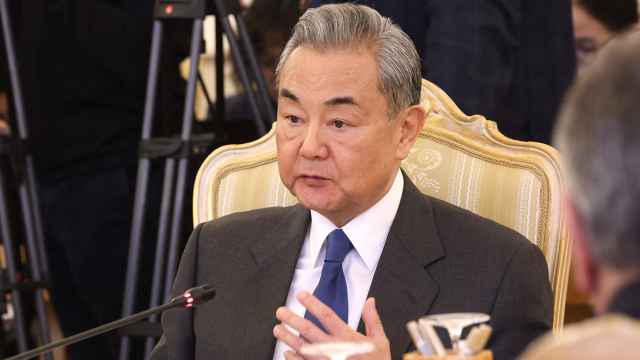An Economic Development Ministry proposal to free small and mid-sized business from prosecution by anti-monopoly regulators has met with strong support in parts of the business community and skepticism from economists.
In its latest plan to spur economic growth, the ministry said that small and mid-sized businesses have been affected by pressure from regulators, which has even pushed some enterprises into the shadow economy, Vedomosti reported, citing a copy of the proposal.
Furthermore, the Federal Anti-Monopoly Service, or FAS, is far too large and has too broad a spectrum of activities, the ministry says.
The FAS has a staff larger than any of its counterparts abroad and yet one of the smallest budgets.
It also opens an inordinate number of cases. There are 161 times more companies in Russia charged with "abusing a dominant position" than in the U.S., and 74 times more such cases in Russia than in Germany, the proposal says.
"From our perspective the Federal Anti-Monopoly Service is overburdened by a great number of cases and processes, which it carries on in very different branches of the economy," Economic Development Minister Alexei Ulyukayev told television channel Rossia-24 on Thursday.
"We believe it would be right to free them from this kind of active involvement in small and mid-sized business," he concluded.
The anti-monopoly service regularly prosecutes and even harasses small and mid-sized businesses, said Sergei Gabestro, general director of the online trade portal Fabrikant.ru and head of business association Delovaya Rossia's committee on competition.
He offered as one of "a million" examples a recent incident in Magadan, in which the service fined a local car wash for charging monopolistic prices for its services.
The "monopoly," meanwhile, had earned little more than 100,000 rubles ($2,900) over five months, Gabestro said.
The main problem with the Anti-Monopoly Service is that it has total autonomy — as one body, it devises monopoly laws, submits them to the State Duma and answers for carrying them out, he added.
"The Anti-Monopoly Service in Russia is now a service for the creation of monopolies and a service that prosecutes small and medium-sized business, which is not done in Europe or in the U.S. Even in China small business has immunity from prosecution for violations of anti-monopoly laws," Gabestro said.
The Russian workforce has similar views. In a survey conducted last week by job-search website Superjob, only 9 percent of respondents said that the FAS defended the rights of small and medium-sized businesses.
Meanwhile, 32 percent believed that the service protected oligarchs and big business, 32 percent thought that they defended officials, 16 percent said that they supported siloviki and 17 percent said that they defended their own interests.
The survey was conducted in 184 cities and towns among 1,200 working citizens over the age of 18. No margin of error was given.
Not all agree that the anti-monopoly service is to blame for small and mid-sized businesses' retreat into the shade, however.
"In my opinion, the growth in the fiscal burden on businessmen in the context of a negative economic environment has an incomparably greater impact," said Timur Nigmatullin, an analyst from Investcafe.
Nigmatullin also disagreed with the contention that the scale of the anti-monopoly service's activities retards economic growth.
"In the Russian economy, the share of monopolies and government monopolies is very high. They form about 50 percent of the GDP. If we cut back regulating, it would diminish the competitiveness of the economy. Keeping in mind our entrance to the WTO a year ago, this could be a fatal mistake," Nigmatullin said.
Contact the author at d.damora@imedia.ru
A Message from The Moscow Times:
Dear readers,
We are facing unprecedented challenges. Russia's Prosecutor General's Office has designated The Moscow Times as an "undesirable" organization, criminalizing our work and putting our staff at risk of prosecution. This follows our earlier unjust labeling as a "foreign agent."
These actions are direct attempts to silence independent journalism in Russia. The authorities claim our work "discredits the decisions of the Russian leadership." We see things differently: we strive to provide accurate, unbiased reporting on Russia.
We, the journalists of The Moscow Times, refuse to be silenced. But to continue our work, we need your help.
Your support, no matter how small, makes a world of difference. If you can, please support us monthly starting from just $2. It's quick to set up, and every contribution makes a significant impact.
By supporting The Moscow Times, you're defending open, independent journalism in the face of repression. Thank you for standing with us.
Remind me later.





